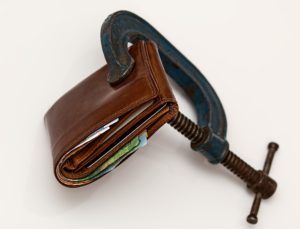Dear Liz: You recently answered a question about closing credit cards and mentioned the “mental load” of managing too many cards. That got me thinking about when is the right time to start simplifying my finances. I have lots of rewards credit cards and have opened several bank accounts to get bonuses, but I wonder at what age I should start consolidating so everything’s easier to track.
Answer: Simplifying our finances can allow us to better monitor our accounts, helping to avoid mistakes and fraud. Reducing the number of accounts we have also makes it easier for our trusted people to take over for us, should we become incapacitated.
But consolidating gets particularly important as we age and start to face cognitive deficits. Our financial decision-making abilities peak in our 50s, after all, and can really drop off in our 70s and 80s.
You can get ahead of this curve by consolidating accounts as you go along. When you leave a job, for example, consider rolling your old retirement account into your next employer’s plan or an IRA so that you don’t lose track of the money. If you’re thinking of opening a new bank account, consider whether there’s an old one you can close. Shuttering credit card accounts can affect your credit scores, so open new accounts sparingly and think about closing any that you’re not using, particularly if they’re newer or lower-limit cards.
Your 60s may be a good time to get serious about winnowing the number of accounts and institutions you’re juggling. Many people find it’s much easier to have one bank, one brokerage and a few credit cards than to have accounts scattered across the financial landscape.
 This week’s top story: Smart Money podcast on no-spend month 2.0, and recovering from credit damage. In other news: February mortgage rates on the downslope by end of month, having a conversation about fraud with older adults, and how to save your job from laying off.
This week’s top story: Smart Money podcast on no-spend month 2.0, and recovering from credit damage. In other news: February mortgage rates on the downslope by end of month, having a conversation about fraud with older adults, and how to save your job from laying off. Today’s top story: What the new COVID relief package means for you and your money. Also in the news: Second relief bill and vaccine rollout attract fraudsters, taking advantage of student loan breaks before 2020 ends, and why a down payment is just the beginning of buying a new home.
Today’s top story: What the new COVID relief package means for you and your money. Also in the news: Second relief bill and vaccine rollout attract fraudsters, taking advantage of student loan breaks before 2020 ends, and why a down payment is just the beginning of buying a new home.  Today’s top story: People with COVID-19 payment accommodations are finding mistakes in their credit files. Also in the news: 6 tips to teach your kids lifelong money lessons during the pandemic, Americans lost $77 million to Covid-19 fraud, and what to do if you can’t pay your taxes next week.
Today’s top story: People with COVID-19 payment accommodations are finding mistakes in their credit files. Also in the news: 6 tips to teach your kids lifelong money lessons during the pandemic, Americans lost $77 million to Covid-19 fraud, and what to do if you can’t pay your taxes next week.